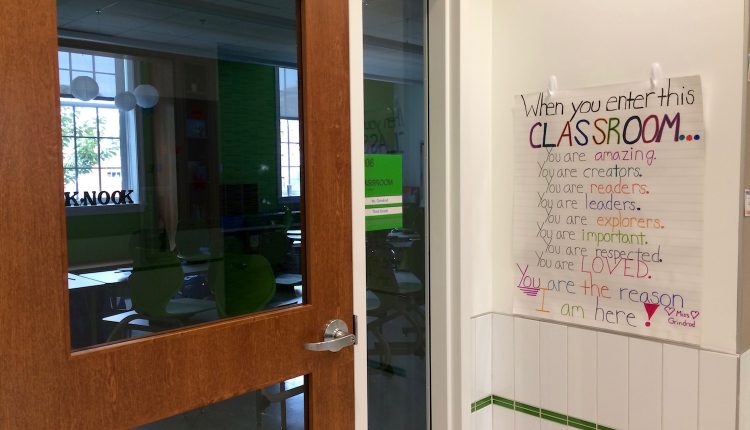Zachary Parker: Prioritizing math education is key to DC’s future
Washingtonians are serious about education, and DC Council hearings focused on education over the past several years are proof: Hundreds of witnesses sign up every time, including dedicated teachers, invested parents, thoughtful students and passionate advocates. While enrollment at DC’s public schools is increasing, we’re facing serious challenges as too many of our students — despite being full of potential for achieving at a high level — fail to meet standards in reading and math. What’s more, teacher retention continues to suffer, and mental health issues are on the rise across the board — from students, to teachers, to school administrators.

Let’s zoom in on just one aspect of these challenges: math education. According to the latest District of Columbia Comprehensive Assessments of Progress in Education (DC CAPE) results, less than 1 out of 4 students met or exceeded grade-level expectations in math. While this doesn’t tell the full story of our students’ academic potential, these figures serve as helpful data points. Other trends corroborate that there is a need to improve what’s happening in our classrooms: 39.2% of students are chronically absent, 30.3% are chronically truant, and the District’s graduation rates hover at 76.1%.
Many officials deserve credit for the District’s citywide focus on literacy, including Brooke Pinto, my Ward 2 colleague, and Allister Chang, the Ward 2 representative on the DC State Board of Education and an advocate for the use of proven literacy programs back when we served on the State Board together. With a deeper focus on literacy in recent years, we have expanded dyslexia training and provided all teachers with LETRS training. DC Public Schools officials point to this standardized training to explain gains in its third grade data.
In short, what we’re doing is showing signs of success. But what about math? Or any other content for that matter. As a former seventh grade math teacher, I know we can do better.
There are several reasons we must focus more intently on mathematics in DC classrooms.
Prioritizing mathematics in our schools is not an option — it’s essential. On Nov. 6, the DC Council held a public hearing on the Mathematics Education Improvement Amendment Act of 2024, a bill I introduced last May. This legislation — which I plan to reintroduce in April — represents an opportunity to enhance math and numeracy skills for students in pre-kindergarten to eighth grade. It includes the adoption of high-quality curricula and teaching materials and extensive support and training for teachers. It also emphasizes greater parental engagement, targeted tutoring, and additional resources for families.
As an initial measure, the legislation calls for the establishment of a Mathematics Education Task Force with local and national education experts, educators, and representatives from District government agencies. This task force will research best practices, develop evidence-based recommendations, and submit a comprehensive action plan to the mayor and DC Council.
An investment in math education is an investment in DC’s economic future. The number of jobs that require advanced degrees or technical knowledge is increasing much faster than the number of those that do not. Careers in science, technology, engineering or mathematics require a strong foundation in math, critical thinking and analytical skills. Even in other fields, the future of work — a future most likely defined by disruptive new technologies — will increasingly require math skills. These skills will be integral to tackling the most pressing global challenges that impact all of us, from the climate crisis and water scarcity to wealth inequality and global security.
Math skills are also directly linked to financial literacy. Algebra forms the building blocks for more complex financial concepts later in life. Basic financial literacy remains low across the U.S., but it is especially low among communities of color. Adults with low financial literacy are more likely to make poor financial decisions and experience cycles of debt. Without a strong understanding of concepts like percentages and ratios, adults may not be able to accurately assess investment opportunities; understand student loan terms, mortgage rates, or the power of compound interest on savings accounts; or plan ahead for retirement.
I remain committed to working with my colleagues on the education challenges that face the District. One small step we can take together now is to pass the Mathematics Education Improvement Amendment Act and make math education a legislative priority. This bill is a critical first step forward in strengthening math proficiency in DC’s public schools and ensuring all students, no matter their background, have an equal opportunity to succeed.
Zachary Parker represents Ward 5 on the DC Council.
About commentaries
The DC Line welcomes commentaries representing various viewpoints on local issues of concern, but the opinions expressed do not represent those of The DC Line. Submissions of up to 850 words may be sent to editor Chris Kain at chriskain@thedcline.org.



Comments are closed.